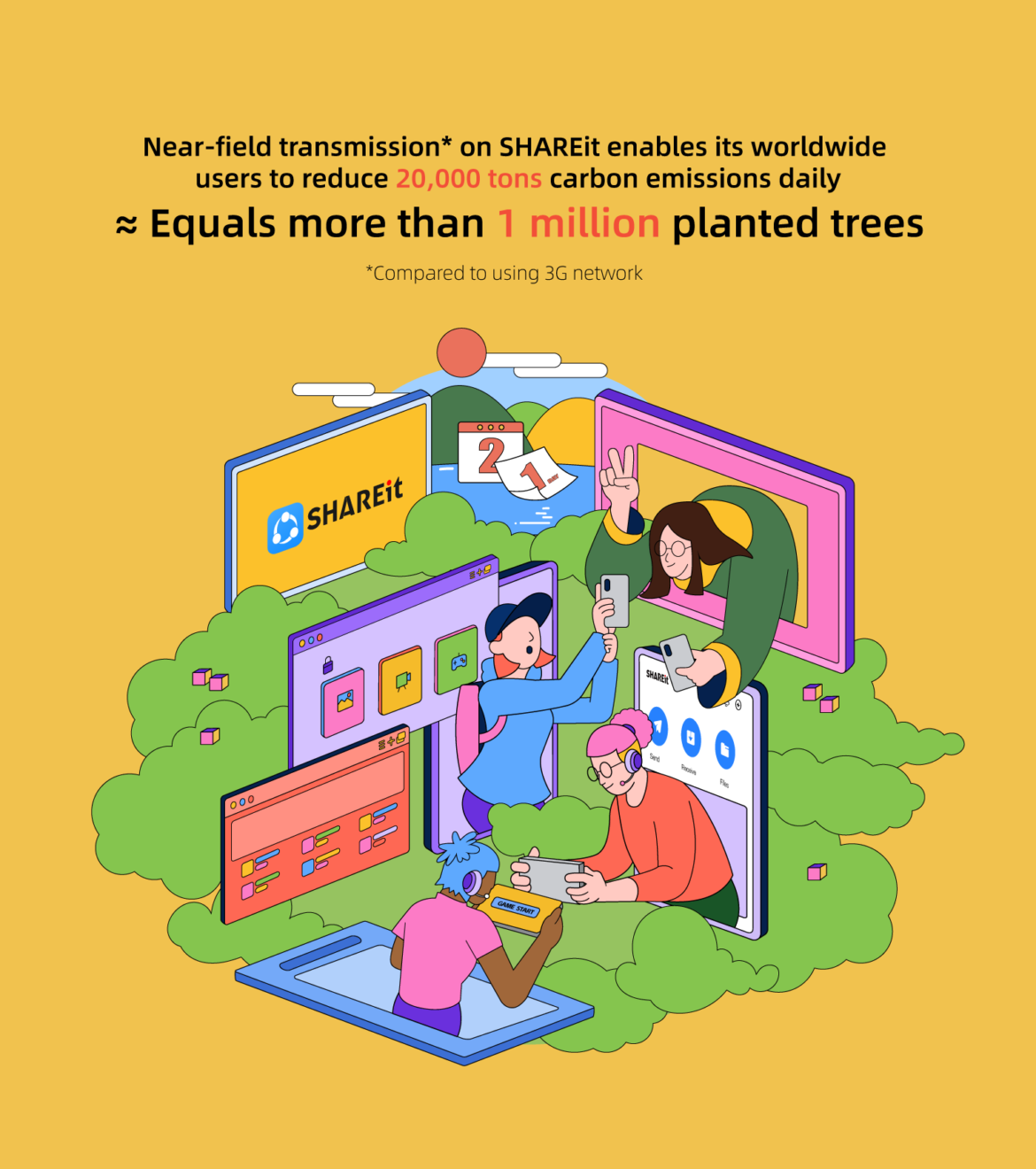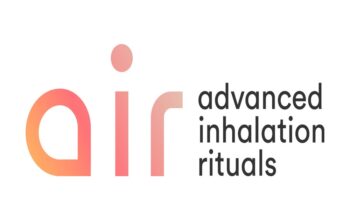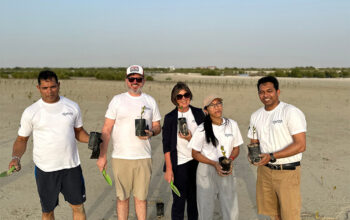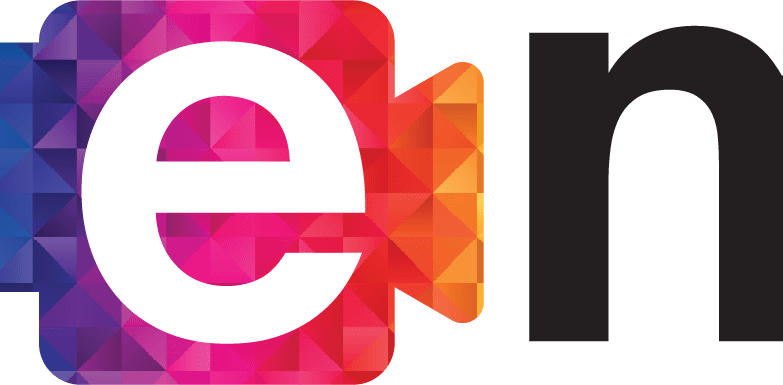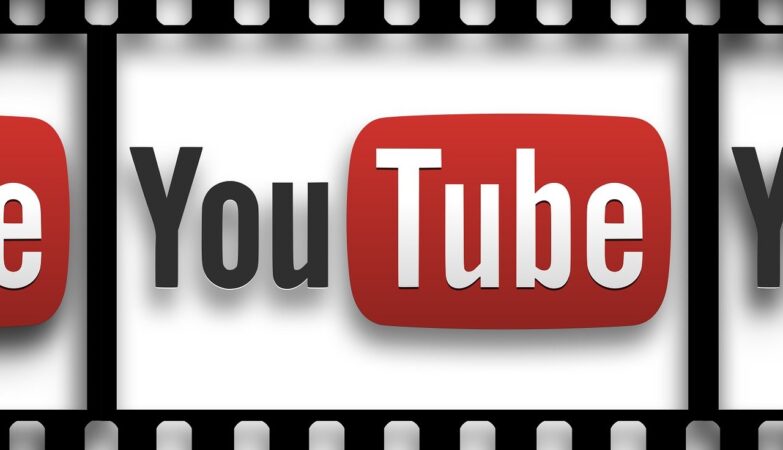13 October 2022 – Today, SHAREit Group, announced the findings of a study conducted by Carbonstop, provider of a carbon accounting and management software, as a sustainability milestone that has contributed to reducing carbon footprint on a global scale. With the use of near-field transmission technology, its flagship app SHAREit app is helping users worldwide reduce carbon emissions by 20,000 tons per day compared to using 3G network, which is equivalent to planting more than 1 million trees.
In addition, SHAREit has also participated in Climate Impact X (CIX), a global exchange for quality voluntary carbon credits that helps companies discover, compare, purchase, retire and report their carbon credits. With an aim to explore and contribute to more projects offered on CIX, SHAREit aims to access carbon credit programs and prepare for the launch of their future ESG initiatives.
Although there is existing transmission technology such as hardware, network and Bluetooth, SHAREit uses near-field transmission technology because it only requires two devices to build a local area network for users to complete their daily file sharing needs. While 3G network transmission technology is ubiquitous and almost seamless today, this method of transmission wouldn’t work without reception devices, which simultaneously require the construction of supporting network base stations, transmission lines, and data centres.
The Value Of Near- Field Transmission Technology
Near-field transmission technology has a faster file sharing speed when compared to other transmission technology, with more than 90% of users reaching a transmission speed of 4 megabits per second, which is 200-times faster than sharing files via Bluetooth. The higher transmission speed also significantly reduces the energy consumption of hardware devices such as mobile phones, because of its contactless and quick-speed nature, which makes it easier for users to exchange digital content, make transactions or connect with other electronic devices.
In fact, mobile phone manufacturers, banking institutions and mobile network providers have been attempting to apply this technology to Smartphones and other handheld devices because of the opportunity to enable the consumer to use commercial services more easily. SHAREit is driving digital and financial inclusion in the emerging markets by enabling those with limited or no data to have discover and have access to digital content, online banking avenues amongst others.
SHAREit reduces 5.51 grams of CO2 equivalent emissions for every 1 megabyte (MB) of file sharing activity compared with 3G network. By using SHAREit near-field transfer technology for file transfers, users worldwide can reduce carbon emissions by 20,000 ton per day compared with 3G network, which is equivalent to the emission reductions achieved by planting 1,051,000 trees, or taking public transportation 240,308,000 times or biking 41,748,000 kms. Calculated under the guidance of international standards for product carbon footprinting such as ISO 14067, PAS 2050, ISO 14064-2 and GB/T 33760-2017, it is proven that SHAREit’s usage of near-field transmission leads to a lower carbon footprint.
Karam Malhotra, Partner and Global Vice-President at SHAREit Group says, “Today sustainable business practices are considered a must and companies incorporating ESG initiatives is the new normal. We always knew there was immense value in terms of environmental impact from near filed transmission technology but only got down to determining it now. At SHAREit, we will be putting in sincere efforts to explore more avenues to reduce carbon emissions through collaborative projects and partnerships.”
As the global ESG practices continue to gain momentum, sustainability has become an intrinsic motivation for corporations. SHAREit will soon launch a SHAREit “personal carbon account” feature in the app to cultivate public awareness and encourage more people to participate in low carbon transmission. The company will also continue to enrich our product matrix to eliminate the “digital content gap” caused by geography, language, class and other factors, and maximise equitable access of digital entertainment content for global users.

